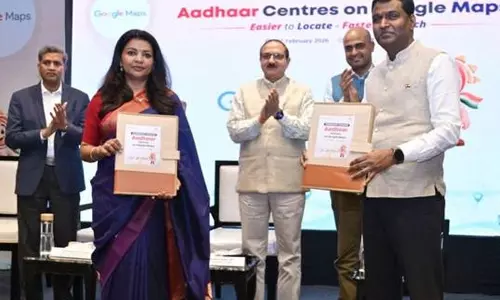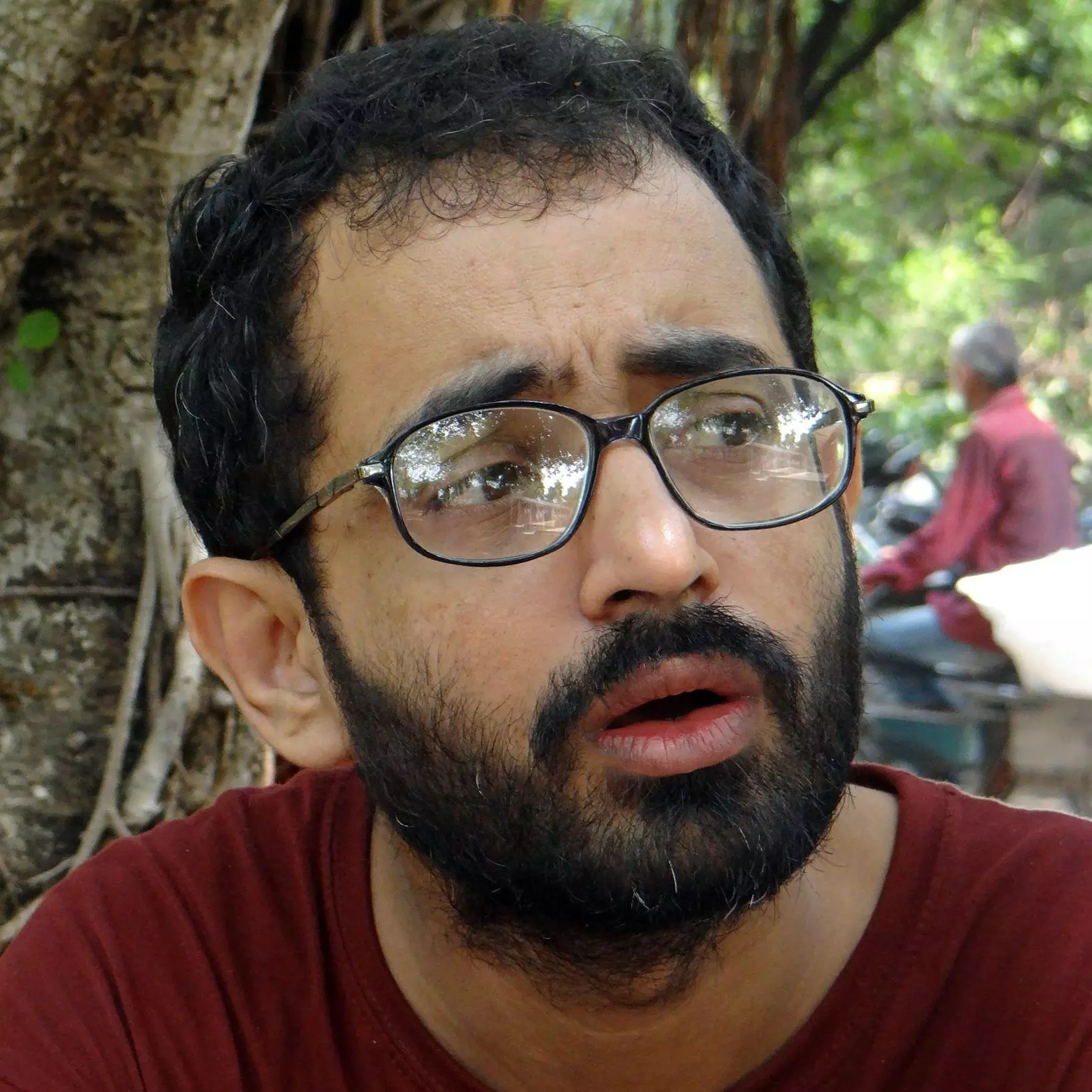

Mr Bhupender Yadav, thank social justice parties - not BJP - for your rise as minister
text_fieldsA few days back, I came across an article with a headline, 'How to make caste irrelevant'. Bhupender Yadav -- senior BJP leader and Union Minister for Environment, Forest and Climate Change and Labour and Employment – wrote the piece in The Indian Express (October 19, 2021) and made a wild claim that "BJP government's policies aim to ensure caste ceases to matter socially and electorally". His article has so much drawn upon half-truth, misinformation, and unsubstantiated allegation against the social justice forces that I have felt compelled to write a response.
Ideally, my response should have been published where Yadav's article originally appeared. But the previous experience with mainstream media discouraged me to send it there and waste several days without receiving any response. I, therefore, decided to look for an alternative platform.
If one observes the mainstream media for some time, one begins to realize that the mainstream media – operating in the "largest" democracy of the world -- is not as "free" and "fair" as it brags about it. It is a bitter truth that the editors are often "political agents" of the ruling parties. While deciding the content, the editors get influenced more by the power and position of an author than the facts, logic and arguments contained in his piece.
In the case of Yadav's article, the editor seemed to have been overwhelmed by the author's position as his article made one after another big claim without giving any supportive evidence. For example, Bhupender Yadav, an OBC face of the Hindutva party, has praised the Narendra Modi-led BJP government for ignoring caste and appreciating efficiency and merit.
But the author has conveniently ignored the obvious fact that the rise of the BJP owes a lot to its ability to do social engineering and manipulation of caste identities. While it has widened the split of Yadav and non-Yadav OBC castes, it has mobilized non-Jatav Dalits against Jatavs. BJP's unprecedented success election after election is largely due to its ability to exploit the caste divide.
Even the recent promotion of the author as union minister is part of the BJP's larger agenda to woo OBC castes, particularly Yadavs, ahead of the upcoming UP assembly polls and the General Elections 2024. The inclusion of Prime Minister Modi's caste in the OBC list and his repeated identification with backward caste during elections rallies are all part of caste politics.
But Bhupender Yadav has ignored all these crucial points and created a binary in his article. He has used all good words for the BJP and Modi Government, while he has reserved all dirty words for the social justice parties. The author would like us to believe that the social justice parties are real enemies of development and nation. For him, they are nothing but sectarian, divisive and reactionary. The exploitation of people, undemocratic party structure, petty electoral calculation, caste biases and discrimination are some of the pejorative terms he has used for the social justice parties.
Unlike his hagiographic tone for the BJP and the Modi Government, he has spat venom against social justice parties. Look at his tirade against social justice parties: "Caste-based social hierarchy has for long been exploited by political parties to expand their base and win elections. Instead of serving the caste groups in whose name these parties rose to power, leaders built personal fiefdoms and failed to ensure a level playing field. Social groups were empowered and disempowered based on electoral calculations. This has been one of the primary reasons for caste biases, caste-based discrimination and caste-enforced inequality continuing in the society".
In his rush to prove his "loyalty" to the Hindutva party by attacking social justice parties, Yadav does not realize that his arguments go against the interests of the deprived communities to which he himself belongs. To put it simply, he is cutting the very branch he is sitting on. It is difficult to say if he realizes that he is being used by the Hindutva leadership as Kalyan Singh and Vinay Katiyar were used against Mandal leaders.
The social justice forces -- which Yadav has been relentlessly criticizing -- are in fact the real reason for his promotion in the Hindutva outfit. The credit goes to the social justice parties for bringing the question of representation and deep-rooted social and economic inequalities to the forefront of Indian politics. It is against this background that the Hindutva leadership realized that they too needed to bring in and promote leaders from Bahujan communities as a force to counter strong social justice forces.
Political historians tell us that the Jana Sangh and the BJP have been traditionally the parties of Brahmins and Banias. But post-Mandal politics, they opened their door for Dalit/Adivasi/OBC leaders. Noted scholars Thomas Blom Hansen and Christophe Jaffrelot in their scholarly work, The BJP and the Compulsions of Politics in India (2001) have observed the shift in BJP politics when it started roping in lower caste leaders post-1990s: "The upper-caste character of Hindu nationalism has become a greater handicap for the BJP in the 1990s because of the growing political consciousness of the low castes in the wake of the "Mandal affair". The party could not ignore the OBCs which account for 52 per cent of the population and which were especially mobilized in its strongholds of north India" (p. 30).
The Hindutva forces, thus, added several "stooges" to their fold to counter "authentic" voices from oppressed communities. Bahujan ideologue Kanshi Ram, in his small and powerful book The Chamcha Age: An Era of Stooges (1982), has described who chamchas are. Manyavar says that "a chamcha is used to weaken the genuine leader of his creed" (p. 90).
Yadav does not realize that if he has been included in the Modi Government, it is not due to a real change of heart among Brahminical and Manuwadi leadership. The compulsion is due to the nature of electoral politics of India where upper castes are in minority, while the oppressed majority is Dalits/Adivasis/Backward castes/minorities.
He does not realize that till the time Lalu Prasad Yadav, Mulayam Singh Yadav, Akhilesh Yadav, Tejashwi Yadav and Mayawati remain politically strong, the Hindutva party needs him and his likes as a counter. That is why Mr Yadav, instead of firing at the social justice parties, should thank them for the high position he has been offered in the saffron party.
As far as his claim that BJP and Modi-led government are doing universal politics, he does not realize that the game of universal language, the talk of development for all, merit and efficiency are all useless if the questions of 'who owns the resources' and 'who controls institutions' are not raised.
Long back Baba Saheb Ambedkar had said that caste Hindus express their own interests in the language of nationalism while the demands for the rights by the oppressed sections are dismissed as sectarian: "Unfortunately for the minorities in India, Indian Nationalism has developed a new doctrine which may be called the Divine Right of the Majority to rule the minorities according to the wishes of the majority. Any claim for the sharing of power by the minority is called communalism while the monopolizing of the whole power by the majority is called Nationalism" (Dr. B. R. Ambedkar, 'State and Minorities', in Ambedkar Writings and Speeches, Vol. 1, Education Department, Government of Maharashtra, 2014, p. 427).
Can Bhupender Yadav be ignorant of the fact that in India from temples to the Supreme Court, from business houses to educational institutes, from cinema to media, from think tanks to public relations and marketing, only a few castes are sitting at the key positions?
If this is the reality, then talking about caste politics and caste-based discrimination is in fact doing justice. The languages of universalism, development and nationalism, on the other hand, are spoken to divert the public opinion from the real source of injustice. That is why Yadav's praise for BJP and Modi Government for working on the so-called ideology of "Sabka Saath, Sabka Vikas, Sabka Vishwas" is meaningless.
To support his arguments, Yadav goes on to make a historically unsubstantiated claim that BJP/Modi's "model draws its inspiration primarily from Indian greats — Swami Vivekananda, Mahatma Gandhi, Bhim Rao Ambedkar, Ram Manohar Lohia and Deendayal Upadhyaya. All of them spoke about making caste irrelevant in their respective ways." Here, the author has indulged in anachronism.
Moreover, he has said that Ambedkar based reservation on untouchability, not caste. He has, then, quoted Gandhi out of context and jumped to Ram Manohar Lohia and Deendayal Upadhyaya. As a historical fact, these leaders, i.e., Gandhi, Ambedkar and Lohia, have nothing to do with Hindutva ideology. It is the dishonesty of the Hindutva leaders to oppose these leaders in their lifetime but appropriate them after their deaths.
In the end, let me also make an appeal to the author. If he is really serious about the rights of the most deprived sections as he claims, he should raise the issues of democratization within his party. For example, is it a mere coincidence that most RSS and BJP presidents have been Brahmins? Can it be denied that even upper castes are sitting in all the key posts of the Modi Government? By diluting reservations, denying OBC reservations in NEET for many years, privatizing education, selling public institutions and reviving Brahmanism, are Dalits, Adivasis, Backwards and Minorities being empowered?
I hope the dear minister will take these questions seriously and will muster the courage to put them before those within his own party. In short, the real threat to India, particularly the oppressed communities, are not social justice parties but Brahmanism and capitalism.
How many times have the Hindutva forces have spoken against them, Mr Bhupender Yadav?
(Abhay Kumar is a Delhi-based independent journalist and writer. He also teaches Political Science and Urdu. His broad areas of interest include Minority Rights and Social Justice. He can be contacted at debatingissues@gmail.com)





















